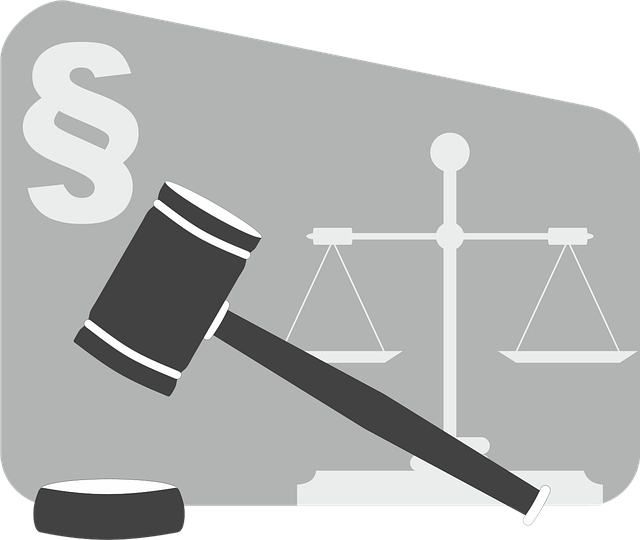The RF Securities Industry Regulation is a comprehensive framework designed to ensure fairness, transparency, and stability in financial markets, addressing trading practices, investor protection, market integrity, and ethical conduct. In personal injury cases within this industry, clients may seek various compensation types including medical expenses, lost wages, pain and suffering, and punitive damages. Regulatory bodies actively monitor firm and individual behavior to prevent white-collar crimes like insider trading, market manipulation, and fraud. Compliance requires robust risk management strategies, structured employee training, data analytics tools, stringent KYC procedures, and anti-money laundering protocols.
“Welcome to an insightful exploration of the intricate world of RF Securities Industry Regulation. This comprehensive guide delves into the fundamental aspects, offering a clear overview for professionals navigating this complex landscape. From understanding regulatory compliance to exploring risk management strategies, we provide crucial insights. Furthermore, our focus on ‘Types of Compensation for Personal Injury in the Securities Sector’ sheds light on an often-overlooked yet vital aspect of industry regulation. Embrace this journey towards expertise.”
- Understanding RF Securities Industry Regulation: An Overview
- Types of Compensation for Personal Injury in the Securities Sector
- Navigating Regulatory Compliance and Risk Management Strategies
Understanding RF Securities Industry Regulation: An Overview

The RF Securities Industry Regulation is a complex web of laws and policies designed to ensure fairness, transparency, and stability in financial markets. This regulation encompasses various aspects, including trading practices, investor protection, and market integrity. At its core, understanding this regulation involves grasping the nuances of different compensation structures for professionals in the industry, such as those involved in personal injury cases or high-stakes transactions. These structures often include a mix of salaries, bonuses, and performance-based incentives, reflecting the diverse nature of work within the sector.
Beyond these financial aspects, regulatory bodies also scrutinize the behavior of firms and individuals to prevent misconduct like white collar and economic crimes. This includes navigating complex issues related to insider trading, market manipulation, and fraud. Interestingly, the industry’s regulation doesn’t stop at financial oversight; it extends into the realm of philanthropy and political communities as well, where certain actors must maintain robust ethics frameworks to preserve public trust.
Types of Compensation for Personal Injury in the Securities Sector

In cases of personal injury within the RF Securities industry, understanding the available compensation types is paramount. When a corporate or individual client suffers harm due to the misconduct or negligence of others in this sector, they may be entitled to various forms of redress. These can include financial damages to cover medical expenses, lost wages, and pain and suffering. Compensatory damages are often awarded to restore an injured party to their pre-incident state, providing a crucial element of justice.
Moreover, depending on the circumstances, punitive or exemplary damages might also be pursued. These types of compensation serve as a deterrent for white collar and economic crimes, aiming to penalize wrongdoers and avoid indictment. By seeking appropriate compensation, both corporate and individual clients can hold accountable those responsible for securities industry regulation breaches while ensuring they are fairly compensated for their losses.
Navigating Regulatory Compliance and Risk Management Strategies

Navigating Regulatory Compliance is a complex task within the RF Securities Industry. Firms must meticulously adhere to a web of rules designed to protect investors and ensure fair practices. This involves implementing robust risk management strategies, including comprehensive risk assessment, scenario planning, and real-time monitoring. By prioritizing transparency, accuracy in reporting, and ethical conduct, securities firms can mitigate potential legal pitfalls.
Effective compliance programs often include structured training for employees on regulatory updates and best practices. Additionally, leveraging advanced technology for data analytics and surveillance can aid in identifying anomalies and potential breaches early on. While managing risks, it’s also crucial to consider the unique challenges posed by high-stakes cases involving white collar and economic crimes. Proactive measures, such as stringent Know Your Customer (KYC) procedures and robust anti-money laundering protocols, can help avoid indictment and maintain the integrity of the firm.
The regulation of the securities industry is a complex landscape, especially with evolving technologies and market dynamics. Understanding RF (Radio Frequency) securities industry regulation is paramount in ensuring fair practices and consumer protection. This article has provided an overview of this domain, highlighting the importance of regulatory compliance. Furthermore, it explored various compensation strategies for personal injury cases within the sector, showcasing the need for robust risk management. By implementing effective navigation through these regulatory aspects, firms can mitigate risks and foster a more transparent and secure investment environment.






